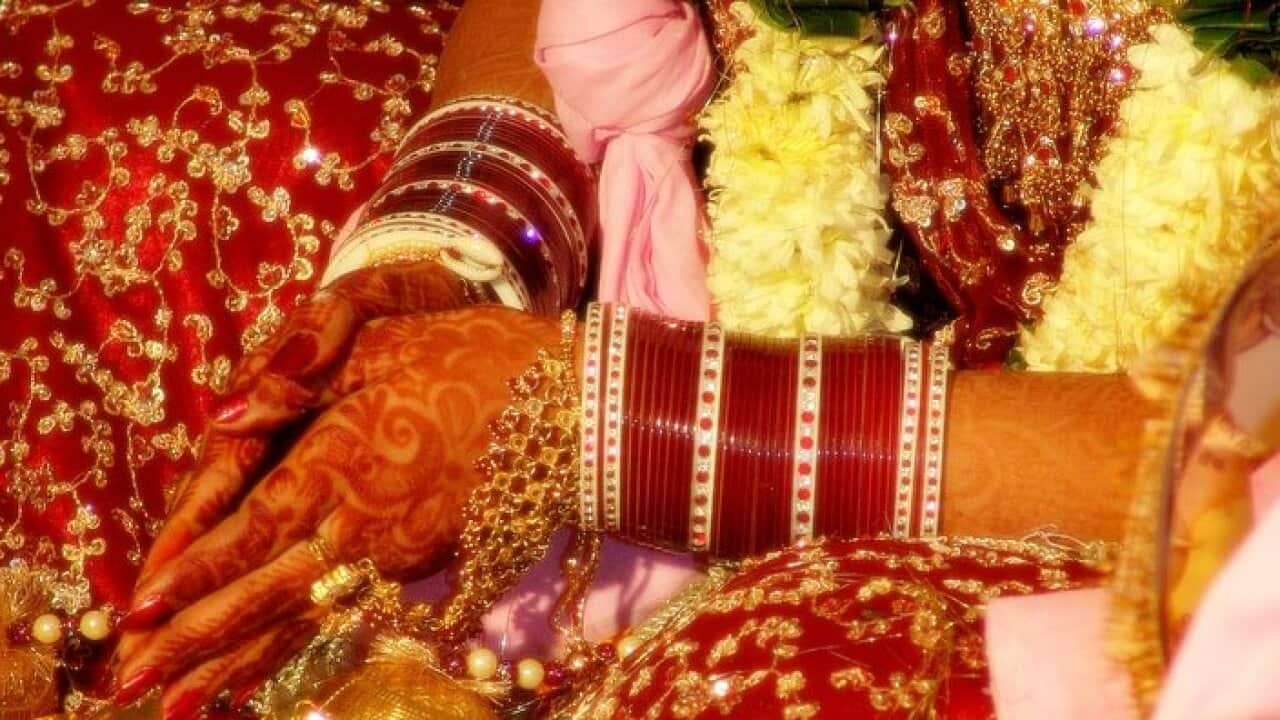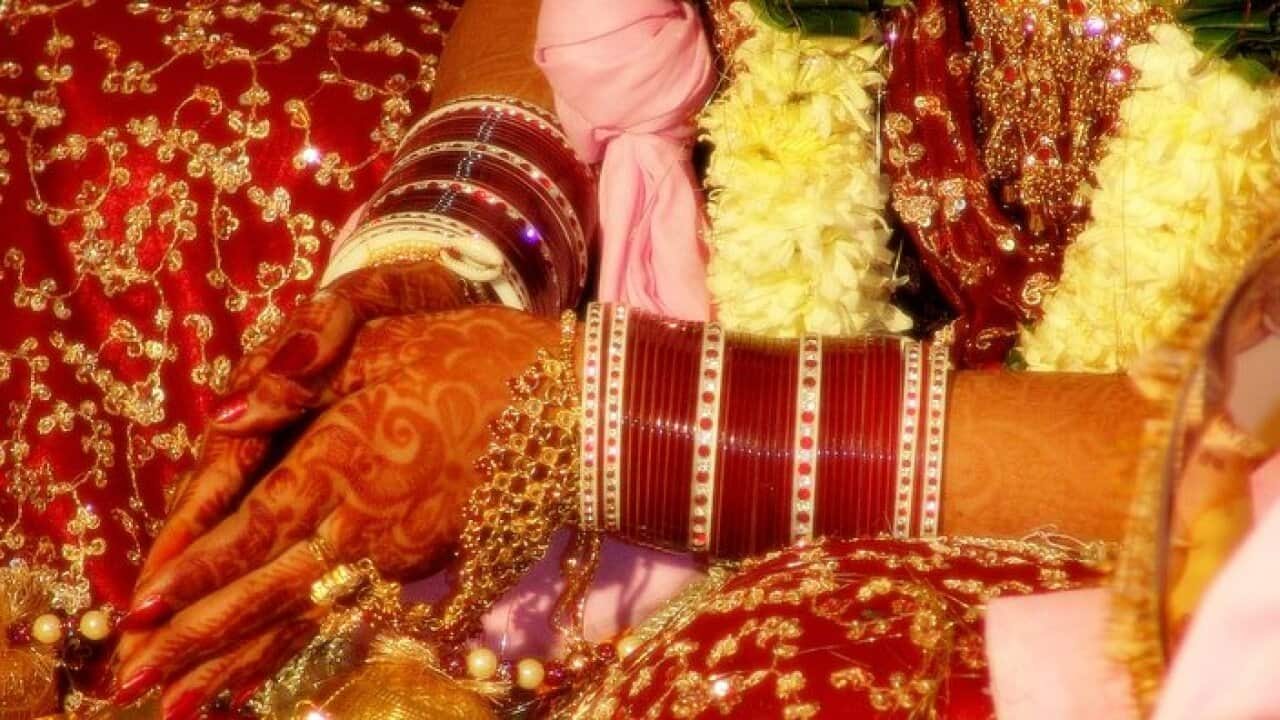After marrying Ashok* in December 2014, Seema* came from India to Australia on a student dependent visa.
She tells SBS, “I landed in Brisbane in September 2015, and Ashok was good to me for a month. But after that, he changed completely.”
After securing a Temporary Business entry (subclass 457) for himself, Ashok obtained a bridging visa for Seema so she could work “as an employee” in a restaurant he had opened.
The application was processed and Seema was granted the visa on 15 March 2016.
But according to Seema, he was very abusive.
“He used very bad language, and sometimes he also beat me,” she said in an interview with SBS.
“I used to work very long hours in the restaurant and he didn’t give me any salary or wage. I didn't even get spending money. Ashok said all the money had been spent in bringing me over to Australia, so I’ll just have to work hard.”
It was a second marriage for both of them and Seema was unaware of the circumstances in which Ashok’s first marriage had broken down.
"I found out from Ashok’s friends that he was abusive to his first wife as well, and she had to leave him because he beat her as well.
"I found out later that she had reported him to the Police but I didn’t know that before I got married.”
Unaware of her rights in Australia and what options she may have for help, Seema didn’t report the abuse to any authorities.
But the neighbours called for police one day and according to a sworn statement by Seema, “he tried to hush everything away, saying they were just playing around, and nothing serious had happened."
Seema didn’t share any of this with her family back home in India, as she didn’t want them to worry.
But last year, things became unbearable after Ashok nearly strangulated her. Seema left home, thinking it was best for her to go back to India.
“I left the house and went to the railway station. I just sat there and cried for a long time.”
“A Punjabi girl saw me and asked me what was wrong. I told her everything.”
"She comforted me and told me I’m a brave girl. She asked me why I was leaving Australia, since I have a working visa until 2020.”
"I told her that my husband had cancelled my 457 dependent visa and I only have until 25 January 2018 to live legally in Australia.”
According to Seema, the Punjabi woman she met at the railway station was a complete stranger, but a good samaritan at heart.
“She told me I could live with her and fight my case in the court – and that she will try and arrange some assistance for me.”
Seema stayed with the good samaritan for almost 25 days, and during that time, there was a hearing at the court where no further bridging visa was granted and another date for the next hearing was set for 31 January 2018 – six days after her visa expires.
Seema says, “the court was sympathetic to because of the history of family violence, but they were unable to grant me any visa to stay on.”
"I have no choice but to leave Australia for now – I am booked to fly back tomorrow (January 23).”
“But I will try to come back as a student and rebuild my life here. Life in India will be really hard for me, because of the social stigma there is to cases like mine. I want to stand on my own two feet, and am going to try to come back to Australia.”
In the last month or so, Brisbane-based social worker Jatinder Kaur tried to help Seema pro bono, and she confirmed to SBS Punjabi that Seema’s visa expires before her next hearing at the Federal Circuit Court on 31 January 2018, and she “doesn’t want to stay in Australia without a valid visa.”
According to Jatinder Kaur, many women like Seema are not eligible to access family provisions of the Immigration Act purely because of their visa status. This includes women on 457 spouse visa, New Zealand temporary visa, Student visa, as well as Business Skilled Visa.
SBS Punjabi will present a more detailed interview with Jatinder Kaur shortly.
* Seema and Ashok are not their real names.
SBS Punjabi team would like to thank Nital Desai from for their assistance with this story.
PLEASE NOTE: f you are seeking help regarding a family violence matter, please call 1800 RESPECT or 1800 737 732. This is a free call, from anywhere within Australia and if you can't speak English fluently, an interpreter can be arranged. In case of emergency, please call 000
Related stories from SBS Punjabi

New law to stop domestic violence offenders from sponsoring family visas




